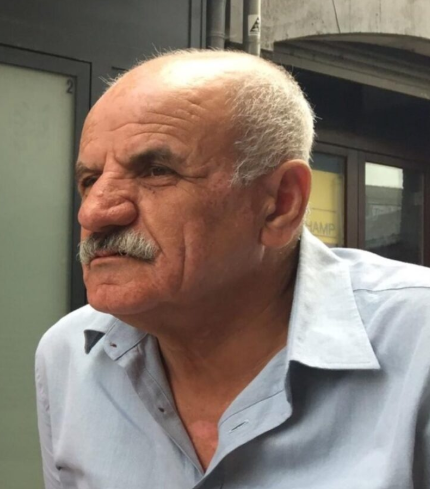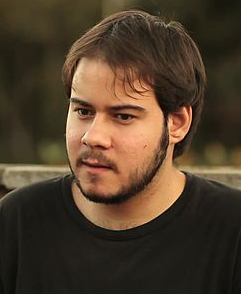Sadly, those lists keep on stretching. Unfortunately they are way far from exhaustive, or may you have information regarding the victims, or about new developments (health, legal outcomes etc.),, help us fill the gap by email at contact@obspol.be. Full names are displayed wherever the story has gone public and the names released...
- These lists are unfortunately way far from being exhaustive, help us fill the gaps!
- For their protection, the names of the victims and witnesses who sent us their testimony and allowed us to publish it have been made anonymous, as well as the dates and sometimes places of aggression.
- For those of the victims who sent us their testimony, a dedicated page will show the detail of the violence (both physical and psychological). For the others, this level of detail is sometimes missing..
- You may reach a victim page either :
- by clicking on the image on the Wall of Shame (photos/illustrations appear by chronological order of the aggression, the most recent at the top.
- by using the Recorded Victims Table below the photos, which enables filtering and searching.
- by searching by key words (places, violence types, social movements, cases)
- by checking the recorded police violence map
- Check out also the Vox Populi Repression table
- Watch the daily horror show (videos)
- Lastly : the news section shows a compilation of things you should know
The Wall of Shame

Mahamedi, 24.07.2025. Shot dead – Montornès del Vallès

Ahmet Dîkmen, 12.07.2025. Arrested – Valencia

Amaia Zabarte, 05.03.2024. Hit in the back of the head – San Sebastián

Ilyas Tahiri, 01.07.2019. Suffocated – Almeria

Pablo Rivadulla Duró, 16.02.2021. Arrested – Lleida

José Ignacio Barandiarán Urkola, 11.07.1978. Shot dead – San Sebastián

Germán Rodríguez Saiz, 08.07.1978. Shot dead – Pamplona

Jordi Martínez de Foix i Llorenç, 02.12.1977. Shot – Madrid
- Posted
- - Updated 2 years ago
Categories & Tags Search
Search by key words (places, violence types, social movements, cases :
Victims on record
Dates are reversed to make filtering easier.
| AGRESSION DATE | VICTIM | PLACE | OUTCOME | LINK |
|---|---|---|---|---|
| 2025.07.24 | Mahamedi, 22 | Montornès del Vallès | Shot dead | Read |
| 2025.07.12 | DÎKMEN, Ahmet | Valencia | Arrested | Read |
| 2025.03.05 | ZABARTE, Amaia, 44 | San Sebastián | Shot in the back of the head with a foam ball and kciked: wounded | Read |
| 2021.02.16 | RIVADULLA DUR, Pablo, a.k.a Pablo Hasél, 33 | Lleida | Arrested | Read |
| 2019.07.01 | TAHIRI, Ilyas, 18 | Almeria | Suffocated | Read |
| 1978.07.11 | BARANDIARÁN, Joseba, 18 | San Sebastian | Shot dead | Read |
| 1978.07.08 | RODRIGUEZ, Germán, 23 | Pamplona | Shot dead | Read |
| 1977.12.02 | MARTINEZ DE FOIX I LLORENÇ, Jordi, 20 | Madrid | Shot | Read |
The daily horror show
Our videos are hosted on a PeerTube channel. Click on the logos below to access it. Send us your images and we’ll add them there.
Horror show
0:16
0:16
0:16
28.07.2025 – Madrid: Police cracked down on people protesting in front of the Egyptian embassy, demanding that Egypt support opening the border
28.07.2025 – Valencia: Tension between police and firefighters during a new protest over their working conditions
The infamous brutal police forces of the Spanish capitalist dictatorship in their main role of political repression against the working class… some save lives and help their fellow human beings… others would eagerly take them away, excited by the prospect of murdering civilians in the streets if they were given permission.
[Source: eldiario.es on Tik Tok]
NewZ
An investigation by the Catalan media outlet ‘Directa’ confirms how Israeli companies continue to control spyware in the security forces.
The loopholes in the embargo decree against Israel launched by the Government in September and validated by Congress on October 8 have once again been exposed following the publication on November 3 of an investigation by the Catalan media outlet Directa on the use of spy technology Made in Israel in the State’s security forces.
According to this report, published in issue #594, Excem, a company that donates to Benjamin Netanyahu’s Likud party, has been awarded the contract for the Catalan police’s communications interception system. Meanwhile, the Reliant software, developed by former military personnel in Tel Aviv, is “the backbone of the Civil Guard’s espionage operations.” According to this investigation, authored by journalist Jesús Rodríguez, surveillance technology is “one of the areas the Spanish government has glossed over in its decree-law blocking Israel’s arms industry.”
n activist from @granollers_shsc was arrested in the midst of a torrential rain alert. She was arrested for defending the right to housing. An eviction was carried out in Granollers involving three minors. They now find themselves without any alternative housing. The eviction was carried out in the midst of a Civil Protection alert.
Ahmet Dikmen, a Kurdish refugee in Europe, was arrested on 12 July in Valencia, Spain. He was released on Thursday 24 July and returned home. Spain had threatened to extradite him to Turkey.
The official decision to release him was made on Thursday afternoon, and he was released from prison at 8 p.m. He then returned home the following day.
[Source: Secours rouge]
The Barcelona Court overturns the conviction of the seven activists of 8 Mil Motius, tried for blocking the FGC tracks during the feminist strike on March 8, 2018.
Nine months ago, last October, the Criminal Court number 3 of Terrassa had sentenced each of the seven activists to one and a half years in prison for public disorder. It also ruled that they were disqualified from the right to vote and sentenced them to pay 26,164 euros in compensation to the railway company, in accordance with the economic losses associated with the protest action, according to estimates in an FGC report.
The lawyer in the case, Laia Serra, remarked this afternoon, when the acquittal was made public, that she had been clear from the beginning that the action within the framework of the general strike was not criminal, but rather a “right to legitimate protest.” “A lot of pedagogy is still needed so that the courts understand and protect the value of political action,” the lawyer said.
The protest action took place on March 8, 2018, during the first call to stop everything against gender violence. Several activists went down to the train tracks, at the junction between Barcelona, Terrassa and Sabadell, and stopped traffic for nearly two hours.
The aim was to draw attention to the accumulation of sexual assaults on public transport. “With the acquittal, one of the most serious cases against the feminist movement in recent years is closed,” said the support group for the women accused.
The Irídia Center for the Defense of Human Rights had referred to the sentence as disproportionate and referred to it as an example of the “abusive practices” against social movements, which Irídia warns “limit the space of civil society to exercise the right to protest.”
During the trial, lawyer Serra criticized the position of the Public Prosecutor’s Office, which requested three years in prison for the activists. “It is a criminalization of the right to protest of women who organize to say that things are not going well and question social actors,” said Serra, upon learning of the first instance sentence that has now been annulled.
[Source: Directa]
A man has surrendered at the police station after learning that he was being sought. There are already 24 arrested in the operation known as Operation Fire of the national police
[Source: X]
In Cadix, 23 people were arrested for defending their right to strike. One person is in jail. 85,000 euros bail. In TorrePacheco, after a collective attack [probably by local neo-Nazis & ultras] against migrant.es, no arrests.
No action. No judicial emergency. It’s not a coincidence. It’s a system.
This perverse symmetry conveys a clear message: in Spain, punishment is reserved for those [& those] who raise their voices, not for those [& those] who unleash hatred. Criminal law doesn’t apply where vulnerable bodies lie on the ground, but where there are banners, cries and solidarity.
Structural violence isn’t repressed, it’s regulated. Workers’ [& workers’] protest is not tolerated, it is sanctioned. Dissent is criminalized. Aggression is whitewashed.
It’s not a systemic error. It’s the system. The law operates with surgical precision to preserve economic order, not coexistence.
And faced with a metal strike, it responds with truncheons, courts and fines. Faced with a group of hate-driven racists, he responds with administrative silence.
For what really threatens the state is not the punch, but the social bond. It’s not fury, but organization. A punch that hits a migrant is a symptom. A picket line in a factory is a challenge. And that’s why it’s punished with every possible force. Not for what happened, but for what might happen if the example were to spread.
Torre Pacheco and Cadiz are not unrelated episodes. They are two extremes of the same mechanism: the one that allows you to strike if it’s downwards, but never questions what’s upwards.
[Source: Spanish Revolution]
Spanish authorities have arrested Kurdish activist Ahmet Dikmen, who has been living in Europe since 2013. Arrested on Saturday 12 July in Valencia, the activist faces a 20-year prison sentence in Turkey for his political activities. Spanish authorities have announced their intention to deport him to Turkey.
[Source: Secours rouge]
This morning, around 12:00 am, the City Council of Murcia, governed by the Popular Party of José Ballesta, has ordered the eviction of a makeshift camp under the bridge of the A-30 highway, next to the Paseo del Malecón, where more than twenty migrants in extreme vulnerability were residing.
The action has been carried out by the Local, the municipal service SEMAS and staff of Urban Engineering, without mediating word and without offering decent accommodation alternatives to the people affected.
[Source: La Protesta]
The midway point of the 2025 San Fermin festival in Iruñea (Navarre) shows a significant drop in serious crimes and calls to emergency services, according to data provided by the Minister of the Interior of the Government of Navarre, Amparo López, and the Minister of Health, Fernando Domínguez, as reported by Diario de Noticias and EFE.
In the first four days of the festivities, 8,995 calls were recorded on 112, a 16% decrease compared to the approximately 10,000 calls made during the same period last year. The number of complaints also fell by 26%, to 782.
Despite the social perception of a supposed “increase in crime” and the resulting justification for increased police force and violence, the data show a different reality. Reports of sexual assault have dropped from 16 to 6 compared to last year, with 7 arrests in these cases. Theft remains the most common type of crime. Furthermore, of the more than 13,000 breathalyzer tests, only 31 have yielded positive results, less than 1%.
In the health sector, Regional Minister Fernando Domínguez reported that the majority of hospital and emergency room visits were unrelated to the holidays. From July 6th to midnight on the 10th, 1,734 visits were made at the University Hospital of Navarra, 713 at the Doctor San Martín Hospital, and 599 at the Buztintxuri center.
Among the cases related to San Fermin, injuries, alcohol poisoning, and assaults predominate, with 123 people treated at the HUN and 106 in outpatient emergencies. Domínguez emphasized that most of the cases were for conditions unrelated to the festivities.
[Source: Diario socialista]
The Gag Law turned 10 years old – Administrations and institutions that should ensure the rights and freedoms of all citizens.
Racism is structural and manifests itself in all areas of life. Thus, it determines the division of labor, access to housing, education and health; it establishes administrative barriers in the access to registration or documentation of people in an irregular administrative situation; it deprives freedom in the so-called Internment Centers for Foreigners and appears in the daily actions of the Security Forces and Corps (FCS).
On the International Day Against Racial Discrimination, the groups and organizations signing this manifesto want to focus on this latest manifestation of institutionalized racism: police controls motivated by racial or ethnic criteria. An endemic problem, which is systematically denied in the Spanish State.
We have been denouncing for years not only the existence of this racist police practice, but also its consequences on migrants and racialized people or those belonging to historically oppressed ethnic groups who suffer it on a daily basis. A practice that has proven to be ineffective in the fight against crime and other illicit activities and also undermines the confidence of the affected groups in the institutions. A practice, in short, that affects their physical and emotional health, limits their freedoms and human rights, but also has an impact on society as a whole, which sees how an important part of its neighbors are criminalized and stigmatized on a daily basis.
Therefore, the undersigned organizations request the implementation of the following measures in order to eradicate these racist police practices:
To clearly and explicitly recognize racism and its multiple manifestations, such as anti-Gypsyism or structural and institutional Islamophobia by Public Administrations, political authorities and FCS. In particular, the existence of racial and ethnic profiling in police stops and identifications.
To clearly prohibit by organic law the use of racial profiling in stop and identification tasks, establishing a legal framework that defines this practice and identifies it as a form of racial discrimination and, at the same time, obliges to motivate the police action with objective evidence and information.
Implement the so-called “identification forms” in all FCS: a tool to record the actions of stop and identification that includes, among others, the justification and motivation of the action, the result of the same and the ethnic-racial appearance of the affected person, who also receives a receipt of the police action suffered and information to file complaints in case of not being satisfied with the action.
These forms should be designed with the participation of civil society organizations specialized in the matter, mainly affected groups. Such participation should also take place in the phase of supervision of the systematized results obtained, as well as in the review of legislation, protocols, orders, instructions and circulars, and in the general practice affecting this population.
Finally, to create an external, public and independent competent mechanism to monitor, evaluate and sanction police actions that violate human rights.
We understand that only with concrete measures and actions, and not with mere appeals to non-discrimination, it is possible to put an end to practices that affect the daily lives of an important part of our society. Now, when the latest modification of the LO 4/2015, of March 30, on the Protection of Citizen Security (known as the Gag Law) is being processed, it is the time to act.
10 years of the Gag Law.
ISource: Sare Antifaxista]
“Perhaps a wild beast dwells within us. Surely it was born of the suffering that caused us to turn away from what we loved the most”<
Xosé Tarrío
We live with our backs turned to a brutal reality. Prisons. They are the harshest sanction of a penal system that identifies justice with punishment. They are also the current “home” of more than 56,000 people in our country. How have we naturalized a system of vengeance, confinement and dehumanization in a culture that presumes to have “universalized” values such as freedom and equality? Who do “our” prisons isolate today? What good does their confinement do society?
In this course we would like to understand, first of all, what the penal system consists of, delving into the criticisms that have been made from abolitionism, to then put the focus on these invisible punishment cells, their inhabitants, their living conditions and the struggles to improve them, analyzing the transformations of the penitentiary system since the struggles in the prisons of the Transition to the present day. We will try to map some of the forms of resistance to the penal system from the associative environment, and the forms of resistance that arise around it, both to improve the living conditions of prisoners and to demolish these spaces of social cruelty. We also wanted to better understand what a feminist abolitionist point of view -of course, of prisons- consists of, and we will not forget to understand the specific forms of punishment and confinement of foreigners in CIE’s.
[Listen to the podcast]
16 February 2023, Barcelona
The police officer’s activity was documented from May 2020 to October 2022, thanks to an investigation conducted by the newspaper, La Directa.
On 31 January 2023, five of the activists, human rights defenders and union rights affected by the police operation, started criminal proceeding against the police officer for: systematic sexual abuse, torture and offences against moral integrity, the crime of discovery and disclosure of secrets, and constrainting their civic rights, including a breach of freedom of association. Criminal charges, which have also been filed against the police officer’s superiors, count on the legal support of Irídia – Centre for the Defence of Human Rights and the CGT (General Confederation of Labour Union).
In light of the seriousness of these violations, the organisations and collectives undersigned state that:
- In this case, the police operation reveals clear gender discrimination that serves a dual purpose. Firstly, to obtain information and to manipulate civil society and the organisation of different social movements in Barcelona. Secondly, to punish women involved in such collectives and struggles.
- Using intimate, sexual relationships for the purpose of state espionage stems from sexism in the police and the institutional violence that currently exists in Spain. In this case, sexual violence is institutional violence because the acts were perpetrated by a police officer in the exercise of his duties, which were authorised, endorsed and permitted by the institutional structure to which he belongs.
- Such police operations are unnecessary and unjustifiable in any democracy, and they undermine the rule of law, as they promote the use of tactics aimed at persecuting political dissent; and human rights defenders, as well as reducing the space for civil society and its ability to organise.
- Although we know that state surveillance is currently a reality in Spain (through the use of programmes such as Pegasus and the discovery of two other infiltrated police officer, uncovered by La Directa on 7 June 2022 and 13 February 2023), this case represents a significant escalation because of the extent to which individual and collective rights are affected and the impact it has on the people directly affected and on the movements themselves.
This is not an isolated case. Although this kind of infiltration should be considered an exceptional resource, subject to very strict and specific conditions, the infiltration of police officers into social and political movements is a practice that has also been used in other countries. Particularly noteworthy is the precedent set in the United Kingdom, where, in 2021, the Investigatory Powers Tribunal concluded that the deployment of Mark Kennedy, an undercover officer who had had relations with several women, one of them lasting more than six years, violated five fundamental human rights: the prohibition on torture and/or inhuman and degrading treatment, the right to a private and family life, freedom of expression, freedom of association and assembly, and the prohibition on discrimination, in this case on grounds of sex.
These events show that all citizens and associations are at risk of becoming victims of these arbitrary and abusive violations. In this way, the use of such operations intimidates and has a chilling effect on citizens, significantly restricting civil society’s political space. As in the UK, this case should generate public debate on the limits and control of policing in a state governed by the rule of law and democracy.
The undersigned organisations note that the Spanish state has crossed a lines in terms of the violation of fundamental rights, exploiting intimate and sexual relationships to monitor political dissident. It is essential to expose, name, and challenge this type of police strategy, integrated into a state policy, as well as the specific gender-based violence it entails, in order to demand truth, justice, reparation and, above all, prevent these events from happening again.
It is important to remember that international law establishes a duty on state to investigate effectively and thoroughly in order to comply with their obligations to the victim and, also, to society, in their obligation to prevent future violations, as take action in the face of the most serious human rights abuses.
UN Special Rapporteur on the rights to freedom of peaceful assembly and of association noted, in his follow-up mission to the UK in 2017, that such operations can cause profound and irreparable harm, both “to the survivors and to the well-being of the general population with respect to the free of the rights to freedom of peaceful assembly and of given the increased of mistrust” resulting from the public awareness of the case. He noted that in these cases “the harm can only be partially remedied through a process of real and transparent accountability for those affected, as well as reparation.”
In view of the above, the 88 undersigned organisations call on Spain to:
- Take responsibility in the light of the seriousness of the case and respond with consequences for the perpetrators, punishing these offences with appropriate penalties, which take into account the gravity of the offences; and to comply with its duty to produce a public explanation of the facts.
- Fulfil its obligation to conduct a thorough, effective and independent investigation, with the objective of disclosing the extent of the operation, and to take the necessary measures to ensure effective reparations for the affected persons and movements.
Immediately cease any further police operations of a similar nature and set up the necessary safeguards to ensure that they are not repeated.
Organizations supporting the statement
- Abolish Frontex
- Alianza por la Justicia Global
- Alianza por un mejor Darién – AMEDAR
- from Panamá
- Alternativa de Reivindicación Comunitaria y Ambientalista de Hounduras (ARCAH)
- Associació Catalana per a la Defensa dels Drets Humans (ACDDH)
- Big Brother Watch
Bürgerrechte & Polizei / CILIP - Calala Fondo Mujeres
- Campaign Against Arms Trade
- Campaña Defender la Libertad: Asunto de todxs
- Campaña Popular Palestina contra el Muro de Apartheid – Stop the Wall
- Centre Delàs d’Estudis per la Pau
- Centro de Atención en Derechos Humanos a la Mujer y el Menor Indígena (CADHMMI) from México
- Centro de Estudios Legales y Sociales CELS
- Centro Regional Indígena en Derechos Humanos “Ñuu-Savi” (CERIDH) from México
- CGT, Confederació General del Trabajo
- CIVICUS
- Civil Liberties Union for Europe – Liberties (19 members)
- Coalición de la Defensa de la Tierra
- Palestina Unión Palestina Campesina
- Colectivo Insurrección Visual from México
- Colectivo Reexistencia Creativa from México
- Colombianas y Colombianos por la Paz
- Comisión Multisectorial from Uruguay
- Comité de Defensa de los Derechos del Pueblo de Oaxaca (CODEPO) from México
- Comité de Defensa de los Derechos Humanos de la Mujer (CODEM) from México
- Comité de Justicia por Keyla Patricia Martínez from Honduras
- Comité Permanente por la Defensa de los Derechos Humanos (DPDH)
- Comité Universitario de Solidaridad con el Pueblo Palestino (CUSPPA)
- Confederación Sindical Única de Trabajadores Campesinos (CSUTCB) from Bolivia
- CooperAcció
- Corriente Revolucionaria Bolívar y Zamora – CRBZ from Venezuela
- Defender a Quien Defiende (9 members)
- Derechos Humanos y Derecho Internacional Huminanitario from Colombia
- Digital Freedom Fund
- Digitalcourage from Germany
- End Deportations Belfast
- EuroMed Rights (60 members)
- European Civic Forum (49 members)
- European Group For Studying Deviance and Social Control
- FACQ Berlin
- Fair Trials
- Federación de Mujeres del CUSCO – Micaela Bastidas Puiucagua from Perú
- Frente de Organizaciones Sociales de Chiapas (OPEZ – FOSICH)
- Frente de Pueblos en Defensa del Mejoramiento Barrial de la Ciudad de México – Centro
- Cultural Las Jarillas45
- Front Line Defenders
- Fundación Comité de Solidaridad con los Presos Políticos (CSPP) from Colombia
- Gentium
- Granada Visible
- Grupo FIST Mujeres Migrantes
- Internacionalistas Solidarias en Zurich
- Institut de Drets Humans de Catalunya (IDHC)
- Instituto de Estudios para el Desarrollo y la Paz (INDEPAZ)
- Instituto Mexicano de Desarrollo
- Comunitario (IMDEC) from México
- Instituto Mexicano de Desarrollo
- Comunitario (IMDEC) from México
- Irídia – Centre per la Defensa dels Drets Humans
- LaFede.cat – Organitzacions per a la Justícia Global (124 members)
- Movimiento Alfa y Omega from Perú
- Movimiento Cultural Campesino Los Arangues from Venezuela
- Movimiento de Favelas de Rio Janeiro
- Movimiento Internacional de la Economía de los Trabajadores from Venezuela
- Novact – Institut Internacional per l’Acció Noviolenta
- Observatori DESC
- Observatorio de Derechos Humanos Capítulo EU
- Observatorio de Derechos Humanos Capítulo Suiza
- Observatorio de Derechos Humanos de los Pueblos (DHP)
- Observatorio de la violencia policial from Chile
- Observatorio de Paz de Colombia
- Observatorio para el Cierre de la Escuela de las Américas from Chile
- ObsPol Observatoire des violences policières
- OMCT – Organización Mundial Contra la Tortura (200 members)
- Patronato Pro Defensa y Conservación del Patrimonio Cultural y Natural de Oaxaca (PRO – OAX)
- Police Spies Out of Lives
- Programa Compañeros de A.C. de Ciudad Juáles Chihuahua México
- Radio Lora Zurich
- Red de Colectivas La Araña Feminista from Venezuela
- Red de Integración Orgánica – Rio – Por la Defensa de la Madre Tierra y los Derechos Humanos de Guatemala
- Red Global contra la Violencia Policial (20 members)
- Red por la Defensa de la Infacia Mapuche
- SOA Watch – Observatorio por el Cierre de las Escuelas de las Américas
Soldepaz – Pachakuti - StateWatch
- Stop Represión Granada
- Stop Wapenhandel (Dutch campaign against arms trade)
- Sur Occidente Colombiano Antonieta Mércury de Colombia
- Temblores
- The Campaign Opposing Police Surveillance
- The Network for Police Monitoring
- The Undercover Research Group
- Transnational Institute, The Netherlands
- Unión de Organizaciones Sociales Interculturales del Sur de Pichincha (UOSISP) from Ecuador
[Download the Statement]
11.07.1978 - San Sebastián : Rioters against the Spanish Transition Confront with the police resulting in 1 death
On July 8, during the Sanfermines in Pamplona, serious incidents took place between the Armed Police and left-wing radicals that provoked riots in the bullring and moved to the surrounding area. Germán Rodríguez, a member of the Revolutionary Communist League (LKI, a party that emerged from ETA), was mortally wounded by a bullet while assaulting a police bus. These events are known as the Sanfermines of 1978 and are considered one of the most violent and well-known episodes of police repression during the Spanish Transition.
As a result of this event, a general political strike was called in the Basque Country and Navarra. Violent incidents occurred in numerous localities in both territories. In one of these protests, held in San Sebastian on Tuesday, July 11, Joseba Barandiaran, a young man of nationalist ideology, was killed.
08.07.1978 - Pamplona : 150 Rioters against the Spanish Transition injured, 1 dead
During 1977 and 1978 Spain was undergoing the transition from dictatorship to democracy, and the extreme left and nationalist groups opposed to the Transition were confronted by the police and extreme right-wing elements. In Pamplona these were very convulsive months (pro-amnesty week of 1977 demanding the release of political prisoners with blood crimes -the rest had been released in 1976-, occupation of the City Hall by radicals, frequent riots and attacks on the forces of law and order to force their reaction). On May 9, 1978 a device exploded, injuring four people and causing the death of another. On May 10, the murder of Civil Guard Second Lieutenant José Antonio Eseverri took place in the streets of Pamplona, with knives and kicks after having been disarmed.
Under these circumstances, the 1978 San Fermin festivities began. On July 8, in the Pamplona Bullring, at the end of the bullfight, several peñas of Pamplona came down to the bullring with banners in favor of amnesty. This produced a confrontation (first with shouting and then with blows) with sectors of the public of opposing opinion.[1] The Armed Police broke into the bullring.
The Armed Police burst into the square and fired smoke canisters and rubber balls dispersing those present, except for a group that took refuge in the aisles and responded by throwing objects. The Armed Police in turn responded with live fire, producing 7 bullet wounds (out of a total of 55 wounded treated).
Germán Rodríguez Saiz died when he was shot in the head by the police at the intersection of Carlos III Avenue and Roncesvalles Street. Using the excuse that he had unfurled a banner in favor of amnesty after the bullfight, the police entered the bullring and opened fire.
Vox Populi Repression
Dates are reversed to make filtering easier.
| DATE | LOCATION | EVENT | ARRESTS | CHECKS | VIOLENCE | SOURCE |
|---|---|---|---|---|---|---|
| 2018.03.08 | Train tracks at the junction between Barcelona, Terrassa and Sabadell | Action againts gender violence | 7 activists of 8 Mil Motius | First sentenced each of the seven activists to one and a half years in prison for public disorder | Read | |
| 1977 | Madrid | National Day demonstration | ||||
| 1909.07.26 | Barcelona | The “Glorious Week” : popular uprising that arose from protests against the call-up of reservists for the Melilla War and ended up becoming a working-class revolt against the bourgeoisie, the Catholic Church and the authorities. The revolt, which lasted seven days, quickly spread to the main industrial and mining areas of Catalonia, taking power in cities such as Sabadell and even blocking the entire territory with barricades and cuts in communication lines. | 1,925 people | 2,000 exiles, 17 death sentences and 200 banishments | Read |
